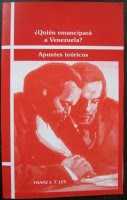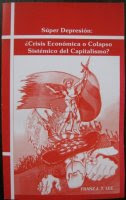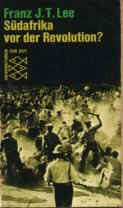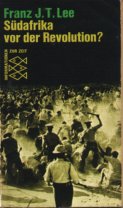Venezuela: Who is the Proletariat?
By Franz J. T. Lee - September 27, 2004
Currently, in Venezuela, in Latin America, for the sake of independent, authentic journalism, in the daily process of deepening the Bolivarian Revolution, of educating ourselves, and our compatriots, praxical precision and theoretical incision in our popular "missions" and universities have become top priorities.
Always the New, the Original and the Authentic logically necessitate corresponding concepts and notions. Furthermore, in a virulent revolutionary atmosphere, the social contents of concepts like the "workers", the "working classes", "revolution", "proletariat", "process", "democracy" or "ideology" permanently change. For example, in the second half of the 19th century, Marx, Engels, Lenin and Trotsky, all were "Social Democrats", in fact, Social Democracy was a synonym for Socialism or Communism. Of course, the current usage of this term has changed completely over the last six years. A lot of ADECOS, of Social Democrats, were golpistas; with others, they directed the "Coordinadora Democrática" against Chávez' legitimate, democratic government. Furthermore, what "ideology" meant during the Napoleonic Wars, and what it connotes nowadays in Bush's "New Wars" is definitely not the very same thing. In fact, the thought "revolution" and the written word "revolution" are not identical.
Since the 1848 revolutions in Europe, all Marxists, also those that were not Anti-Marxists, spoke about the global Class Struggle of the Proletariat against the Bourgeoisie. Till today, across the globe, we witness class struggles against corporate imperialism, against the Fourth Empire", even the "Class War" (Lula) of "proletarian" countries or continents against "bourgeois", global, metropolitan fascism.
Hence, what is to be understood by the "world proletariat"? Who are the workers, the working classes? In how far do they play an emancipatory role in the Bolivarian Revolution? Are these concepts obsolete? Are they to be replaced by concepts like the "nation", "people", "poor" or the "sovereign"? Surely, these are central "ideological" issues that directly concern the Latin American Revolution.
In this short commentary we cannot dive deeply into the turbulent, profound, praxical and theoretical waters of proletarian internationalism and international proletarianism; however, our Bolivarian comrades should think seriously and write scientific analyses about these pertinent issues. Only as such we could transcend bourgeois "ideology", and enter the fertile realms of revolutionary theory.
Now, what or who is the "proletariat", the modern locomotive of social revolution? Let us just throw some light on its historical origins, to indicate that the social content of this concept has changed dramatically over the last centuries, and that we have to find new revolutionary connotations for this world subject of emancipation. We have to identify the real, true revolutionary subject in Venezuela and Latin America. We have to introduce the real, true, authentic Bolivarians to the world. Much has been done, however, much more is necessary.
Obviously, with shabby, revolutionary tools,
with empty words, that lead nowhere, we can only coin weird notions and bizarre ideas, that will end up with myopic triumphalism and activism. Over the last years, in the dominant national and international mass media, we have seen how the "opposition", in its "war of ideas", in its disinformation campaigns, has utilized uncanny and banausic formulations to assassinate Chávez´ character, and therewith, to bedevil the very Bolivarian Revolution itself.
with empty words, that lead nowhere, we can only coin weird notions and bizarre ideas, that will end up with myopic triumphalism and activism. Over the last years, in the dominant national and international mass media, we have seen how the "opposition", in its "war of ideas", in its disinformation campaigns, has utilized uncanny and banausic formulations to assassinate Chávez´ character, and therewith, to bedevil the very Bolivarian Revolution itself.
Hence, historically, in feudalist and capitalist Europe, who coined such concepts like the "proletariat" or the "lumpenproletariat"? Do they exist in Latin America?
Immediately, the layman, the nerd, the ideologue, would say: This concept was invented by the "Communists", by Marx and Engels. Well, we humbly genuflect confronted by such implanted ignorance; really, it's bliss.
From the 16th century onwards, here and there, in European writings, the concepts "proletariat" or "proletary" appeared; later, long before the birth of Marx, at the eve of the French Revolution, especially in "worker's clubs", like the "League of the Just", the concept gradually acquired a worker's content.
In 1837, the Swiss economist Jean Charles Leonard Simonde de Sismondi finally adopted this term. Only in 1842, Lorenz von Stein introduced the concept into German; then the famous German revolutionary poet, Ferdinand von Freiligrath passed the concept on to Friedrich Engels, who used it in the first scientific socialist work, in his book, The Condition of The Working Class in England in 1844.
As a matter of scientific-philosophic curiosity, why did the fathers of scientific socialism use this specific term in their works?
After all, concepts like the "working classes", "working men", "labouring classes" were prevalent in that epoch. Surely, we know that Marx and Engels were linguists par excellence. Hence, let's see what the etymological meaning of this concept reveals.
In Ancient Rome, the proletarius belonged to the under-dogs, to the lowest section of the population. In Latin, pro-olescere simply means "growing out of"; in the sense of mushrooms "sprouting out of the ground", "shooting up". Hence, the proletarius had a derivative, an artificial, a synthetic nature. Marx and Engels introduced him as follows in the Communist Manifesto:
"The bourgeoisie ... has ... begotten the men who are to wield those weapons -- the modern workers -- the proletarians. ... the proletariat is recruited from all classes of the population."
Seen from an arrogant European standpoint, this means that the proletariat is not primordial, not "naturwüchsig"; it is an amorphous social concoction, a social excrement, lacking "cultural" and "civilized" roots.
In fact, the current "globalized" and "civilized" ideas of Bush and Rumsfeld with reference to the "Arabs" at best explain this original, discriminatory conception of the early proletariat.
According to Marx and Engels the new proletarius adopted the capitalist relations produced by the victorious bourgeoisie, and the nexus between the members of the proletariat and the bourgeoisie became "naked self-interest, callous cash payment".
Here we see the growing class antagonism, the alienating relation between the socially rising, wealthy bourgeoisie and the pauperized nature of the future proletariat.
However, on the other pauperized extreme, we find another class, the "Lumpenproletariat". Why did Marx and Engels use this concept?
Grimm's Wörterbuch described the members of this class of social outcasts, as Lumpengesindel: "a slovenly mob, a pack of scoundrels, a godless pack, vagabonds".
Apart from the semantic similarity, this colluvies vagabundorum, that is, this rotting mass thrown off by the lowest sectors of "modern society", the Lumpenproletariat, in Marxian terminology, is exactly the negation of the proletariat. Here we see that the Marxian social class analysis was not normative, was not based on "rich and poor", was not even an issue of "white and black", of "race theory" of "race struggle".
In 1845, the concept of the "lumpen-proletariat" appeared in their work, The German Ideology. Furthermore, in that age, the influential, bourgeois, capitalist work, De Cassagnac explained, that the general concept "proletariat" was composed of "workers, beggars, thieves and prostitutes". For example, this is what the German philosopher Hegel understood by his concept, the Pöbel.
On the other hand, in this same spirit of the European Enlightenment, even for Marx, the Lumpenproletariat comprised the "beggars, thieves and prostitutes", the non-productive sector of the lowest classes.
In Class Struggle in France, he described this class as "gens sans feu et sans aveu". However, according to Marx, both classes, the Proletariat and the Lumpenproletariat, had the following in common: both were "free" and both could be "bought" or "bribed". However, the differentia especifica was, that the lumpenproletarians are déclassés; that they lack a "class interest"; that they can't develop a "class consciousness"; in other words, they can't be conscientized for anything whatsoever. More precisely, capitalism has already destroyed their very body and soul. Well, do such social classes exist in our modern world? And can they be revolutionized, conscientized, organized? What about the "stupid, white man" in North America?
Now, we know what Marx and Engels, the fathers of scientific and philosophic socialism, understood by the proletariat, that is, objectively as a class-in-itself.
To become a class-in-and-for-itself, to acquire class consciousness, to enter the global class struggle, Lenin gave us the master-key: without theory, no revolution. And, Trotsky, in the revolutionary spirit of dum spiro spero -- as long as I breathe, I hope -- , as permanent world revolution, formulated for us the infinite realm of the Bolivarian Revolution, that is, our invincible, emancipatory, transhistoric task. Finally, Che Guevara underlined the true, real essence of this immense responsibility: The duty of a revolutionary is to make the revolution.
http://narcosphere.narconews.com/notebook/franz-jt-lee/2004/09/venezuela-who-proletariat













No comments:
Post a Comment